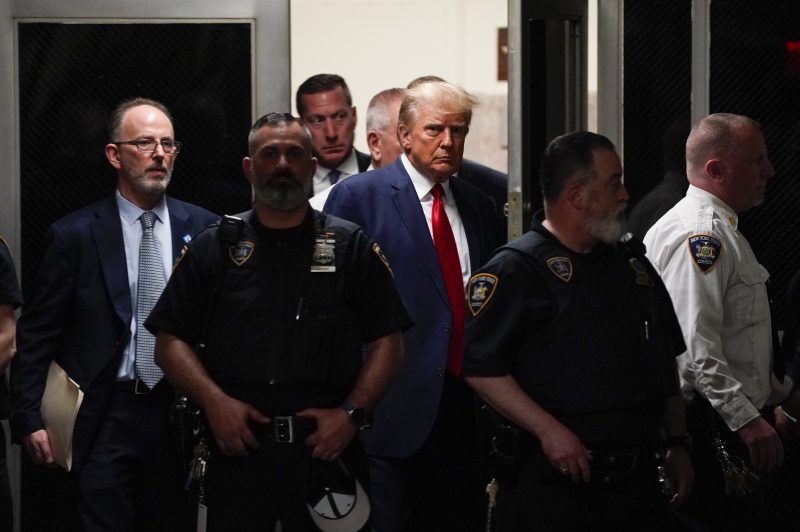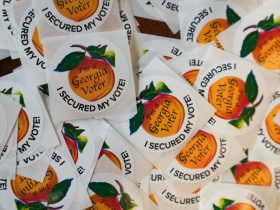NEW YORK — Former president Donald Trump will appear remotely in a Manhattan courtroom on Tuesday so that a judge can warn him not to share evidence provided to his lawyers as part of pretrial discovery in his criminal prosecution on charges of falsifying business records.
New York Supreme Court Justice Juan Merchan has imposed a protective order on Trump and his defense team, barring them from publicly circulating — including on social media — evidence that is not already in the public domain.
Such orders are not uncommon. But in this case, prosecutors have expressed particular concern that Trump would try to intimidate witnesses by publicly posting information he gleans from the documents or that he would attempt to rally supporters to commit violence using information he obtained during the discovery process.
Shortly before he was indicted in March on 34 counts of falsifying business records, Trump warned on his Truth Social account of “potential death & destruction” if Manhattan District Attorney Alvin Bragg were to file charges. In a chilling message reminiscent of Trump’s comments before the Jan. 6, 2021, riot at the U.S. Capitol, the former president also called for protesters to “take our nation back.”
Both Bragg and Merchan have received an onslaught of threats related to the Trump case.
Merchan’s order also prohibits the defense attorneys from making copies of discovery for anyone outside of the legal team and bars Trump from seeing certain documents unless his lawyers are present.
The protective order is not a gag order, and Trump is not prohibited from speaking about the case.
The New York Trump indictment, explained
1/6
End of carousel
Trump’s court appearance will be his second since he was indicted in Manhattan state court in a case related to repayment of hush money given to an adult-film star during the 2016 presidential campaign. Trump, the first former president charged with a crime, was arraigned on those charges on April 4 and pleaded not guilty.
Bragg’s case is one of several serious pending investigations against Trump. The Justice Department is evaluating whether he mishandled classified documents at Mar-a-Lago, his Florida home and private club, or obstructed efforts to retrieve such documents, as well as Trump’s role in efforts to overturn the 2020 election results and potential involvement in the events of Jan. 6.
Two weeks ago, a federal jury in Manhattan found Trump liable for battery and defamation in connection to an alleged mid-1990s sexual assault disclosed by author and advice columnist E. Jean Carroll. The jury in that case awarded Carroll $5 million and found that it was likely Trump sexually abused her in a Bergdorf Goodman dressing room after a chance encounter.
Trump’s criminal case and the various other pending probes could complicate his run for the GOP presidential nomination in 2024. He has been actively campaigning for months and has framed his legal troubles as a function of Democrats trying to keep him from returning to the White House.
The business-records case could go to trial next year, potentially around the time of the presidential primaries. The charges are related to Trump’s alleged misclassification of reimbursement payments to Michael Cohen, his former lawyer and fixer. Cohen paid adult film actress Stormy Daniels $130,000 during the 2016 presidential campaign to keep her quiet about an alleged sexual encounter with Trump years earlier.
Bragg’s team has accused Trump of documenting the payments as legal fees when they should have been reported as a campaign expense.
Trump’s attorneys are likely to argue that the payments did not constitute a reportable expense and that state-level prosecutors cannot use federal campaign finance violations as a basis for turning a state court falsifying records charge into a felony.
In recent court filings, prosecutors have clashed with Trump attorneys over whether the defense is entitled to a detailed breakdown of the elements of each count that will be introduced at trial.
This story will be updated after the court appearance Tuesday afternoon.








